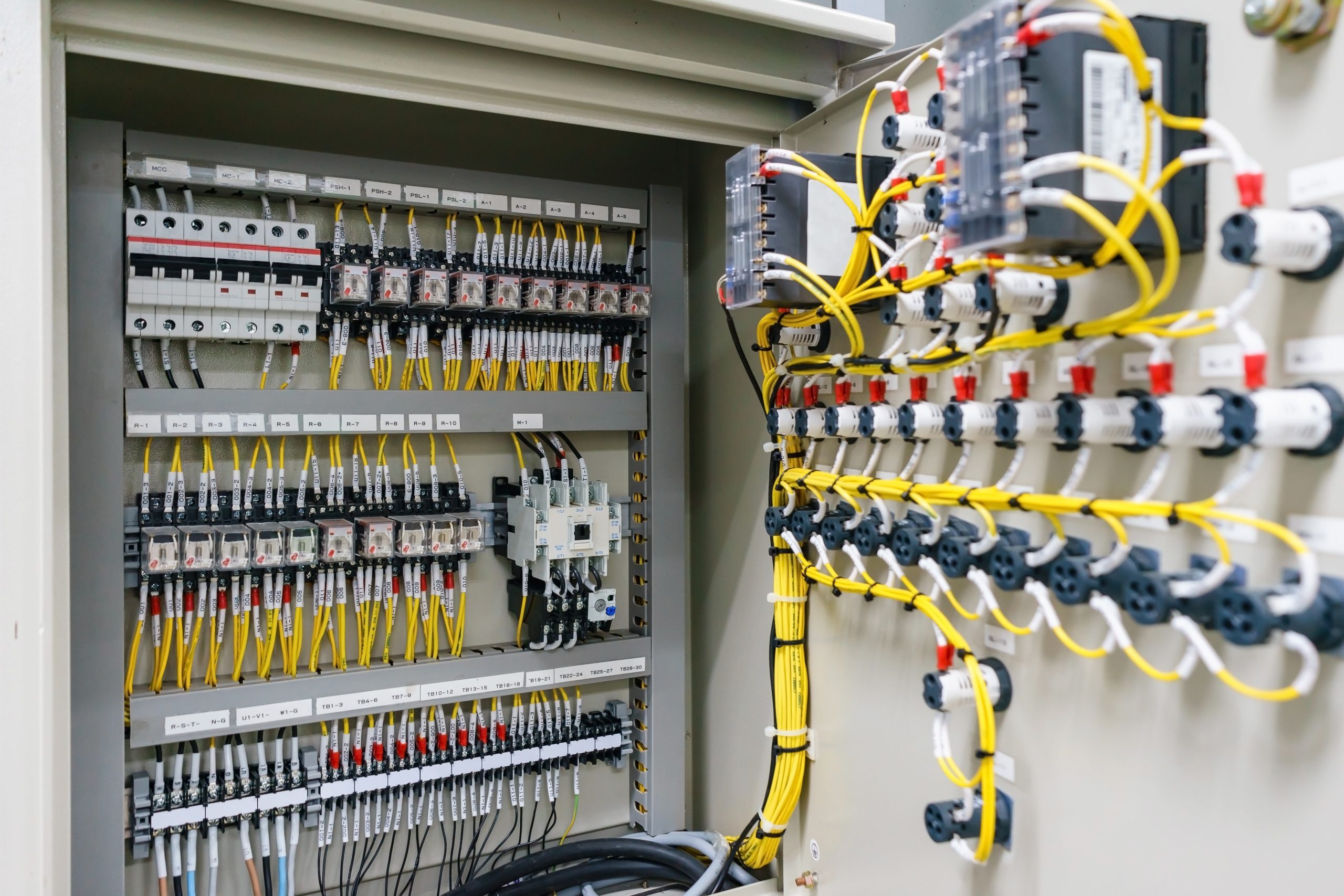Electrical fires are among the most dangerous and costly risks faced by industries worldwide. In fact, electrical failures are responsible for about 23% of all industrial fires, causing significant damage and operational disruption. Electrical control panels, which are vital to the operation of everything from manufacturing to power generation, often go unprotected, leaving a critical gap in fire safety.
Electrical panels contain essential components that drive automated processes across countless industries, yet the hidden fire risks within these panels are often underestimated. When a fire starts in a sealed panel, it can spread quickly, jeopardising equipment, causing severe downtime, and leading to costly repairs. Despite the risks, electrical panels remain one of the most overlooked fire hazards in industrial settings.
Understanding the Risks in Electrical Panels
Electrical panels are integral to industrial operations, but they come with significant fire risks. Below are some of the leading causes of fire in electrical panels:
- Overloaded Circuits: Poor electrical design or high-wattage equipment can overload circuits, leading to dangerous heat buildup and potential fires.
- Damaged Wiring: Old or worn-out wiring, particularly in older facilities, can crack, break, or cause short circuits, igniting a fire.
- Faulty Installations: Installation errors, poor workmanship, or violations of electrical codes can increase the likelihood of fire risks in electrical panels.
- Poor Maintenance: Neglected electrical systems, unaddressed wear and tear, or improper maintenance can result in unnoticed hazards that escalate into fires.
- Short Circuits: Damaged wiring or faulty components can cause short circuits that generate intense heat, often leading to fires in or around electrical panels.
- Insulation Faults: Damaged insulation in electrical panels exposes wiring to contact, causing short circuits or arcing that can ignite nearby materials.
These risks make it clear why reliable fire protection is a necessity. Electrical fires are particularly dangerous because they can spread quickly, often undetected, in environments where highly sensitive equipment is housed.
Why Reacton’s Fire Suppression Systems Are the Ideal Solution
Reacton’s automatic fire suppression systems are engineered to address the unique challenges posed by electrical fires. Designed to integrate with electrical panels, Reacton systems use fast-acting detection technology to suppress fires before they escalate, preventing damage to sensitive equipment and reducing downtime.
- Rapid Detection and Suppression
Reacton’s systems use pneumatic linear detection, which instantly detects heat or flame. When triggered, the system deploys a powerful clean agent to suppress the fire, effectively stopping it in its tracks. This rapid response minimises damage and downtime, ensuring that your operation stays up and running without major interruptions.
- Non-Damaging and Eco-Friendly Suppression Agents
Reacton uses non-toxic clean agents like R-1230 and FM-200®, which suppress fires without damaging delicate electronics or leaving harmful residues behind. These clean agents are ideal for protecting sensitive electrical equipment and ensuring that your operations can continue without the need for costly cleanups or replacements of damaged machinery.
- Easy Installation
Reacton’s fire suppression systems are designed for easy installation in both new and retrofit applications. Whether you're adding protection to a newly constructed panel or upgrading existing systems, Reacton’s solutions can be quickly integrated into your electrical panels, providing 24/7 fire protection without interrupting operations.
- Compliance with International Safety Standards
Reacton’s systems meet and exceed the most rigorous global safety standards.
Our core solutions are UL2166 Listed and LPCB 1666 Approved, providing assurance of performance and reliability for protecting electrical infrastructure. We also offer systems tailored to specific industries, with options compliant with standards such as SPCR 183 for vehicles and AS 5062:2016 for mobile and transportable equipment. Whatever your sector, we can supply fire suppression solutions designed to keep your critical assets protected and compliant.
Key Benefits of Reacton’s Fire Protection for Electric Panels
- Fully Automatic Fire Detection and Suppression: Reacton’s systems are entirely automatic, requiring no manual intervention. They are designed to detect fires at the source and suppress them instantly.
- Compact and Lightweight: Reacton’s systems are space-efficient, making them suitable for installation in tight spaces inside electrical panels without compromising their protective capability.
- Extremely Low Maintenance: Once installed, Reacton’s systems require minimal maintenance, offering long-term protection without frequent servicing.
- Industry-Leading Warranty: Our systems come with a 5-year manufacturer warranty and a 10-year service life, ensuring long-term reliability and peace of mind.
Protecting Your Business with Reacton
Electrical panels are essential for the smooth operation of countless industries, but they also pose significant fire risks. Reacton’s fire suppression systems provide the best line of defense, offering quick, reliable protection that keeps your equipment safe, your operations running smoothly, and your business compliant with global safety standards.
By choosing Reacton, you’re investing in top-tier fire protection for your electrical infrastructure, preserving both your equipment and your peace of mind. Contact us today to learn more about how we can help protect your business from the devastating impact of electrical fires.

No Comments Yet
Let us know what you think